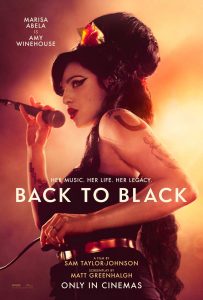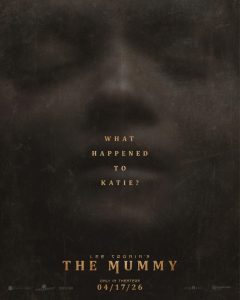Various streaming services adopt different release models. Netflix made its name on the binge-release model with entire seasons released all at once, though it occasionally has dabbled with weekly releases – especially in the non-scripted format.
Disney+ strictly followed the weekly release strategy until recently when they made an exception for Marvel’s “Echo” came out in a binge format and performed well for them.
Apple adopted the approach of releasing 2-3 episodes at once and then weekly releases of the remainder over the next month or so with others following a similar strategy.
Amazon Prime Video on the other hand has mixed and matched. Its biggest success stories “The Boys” and “Reacher” both launched their first seasons via the binge watch approach, but subsequent seasons did the Apple TV+ approach with a few episodes upfront followed by weekly releases.
The other week saw Amazon debut their high-profile “Fallout” series and, surprisingly, released the entire season at once as opposed to a weekly release schedule – marking a rare foray into binge-watch territory for the major Netflix rival.
It has also resulted in debate over whether the series should’ve opted for a weekly release pattern. Speaking with Collider, co-writer and showrunner Graham Wagner says every potential release pattern for the series was debated before they settled on the binge model. Part of the reason they did is that the idea of appointment viewing has kind of died off these days:
“We were on either side of it at very various points of the conversation because I think we’re all kind of trying to decide how to do this in that sort of new normal.
Part of it for us was…we’re missing our must-see TV night… Sunday night was a great night to come out and even if you didn’t like one of the shows, you might watch because there were four shows sort of lashed together in a really sort of ritualized.
I don’t know what night we would have chosen if it was to be weekly. I know Disney’s doing Wednesday at midnight, I don’t know if that’s as a viewer working for me. It’s not appointment viewing to stay up till midnight and watch you know ‘Ahsoka’ or whatever have you.
I want to watch those shows, but yeah until one of the streamers takes a night and claims it I think that the binge model’s gonna persist.”
A quick search across media outlets reveals a bunch of recap and article writers pushing for weekly releases in the belief it generates more discourse (and, understandably, more paid work for them). Wagner points out there are advantages and disadvantages to going weekly though:
“Listen, it could go either way and I think some some fans love the bingeable model. Then, when certain shows are released weekly anyway, it can help the show right because there’s the discourse of course. That’s what we’re after.
Sometimes, with a show like this, the discourse can backfire, and then you know you see your ending coming. I think someone a long time ago said no writer’s room can compete with Reddit. It’s like 10,000 geniuses working 24/7. They’re going to get ahead of you.
So I think in the sort of eight-episode model, bingeing works quite well.”
The comparison is apt in this case as “Fallout” is executive produced by Jonathan Nolan and Lisa Joy, the team behind HBO’s “Westworld”.
To this day, that now gone sci-fi series is seen as a poster child of how the discourse can turn on a show with a weekly release strategy as subredditors and recapers solved the ‘mystery box’ so early on that online sentiment toward the show soured by the finale.
Subsequent seasons were far less well-received and it was ultimately canceled. On the flipside Showtime’s “Twin Peaks The Return” a year later showed how a mystery box series could do a weekly release right and generated discourse along with a ton of critical acclaim.
Amazon itself has had a mixed response with formats – whilst there was some initial upset about “The Boys” shifting to weekly in its second season, it hasn’t hurt the show at all going by the ratings.
“Reacher” on the other hand, which drew unanimous raves for its first season, saw its weekly release second season receive a more mixed response in audience polls even as critics (who received the entire season all at once via screeners) were more enthusiastic in their review scores.
What’s your take? Do you prefer the binge-release strategy or a more weekly approach? Let us know in the comments below.
The post “Fallout” Release Stirs Binge-Watch Debate appeared first on Dark Horizons.







